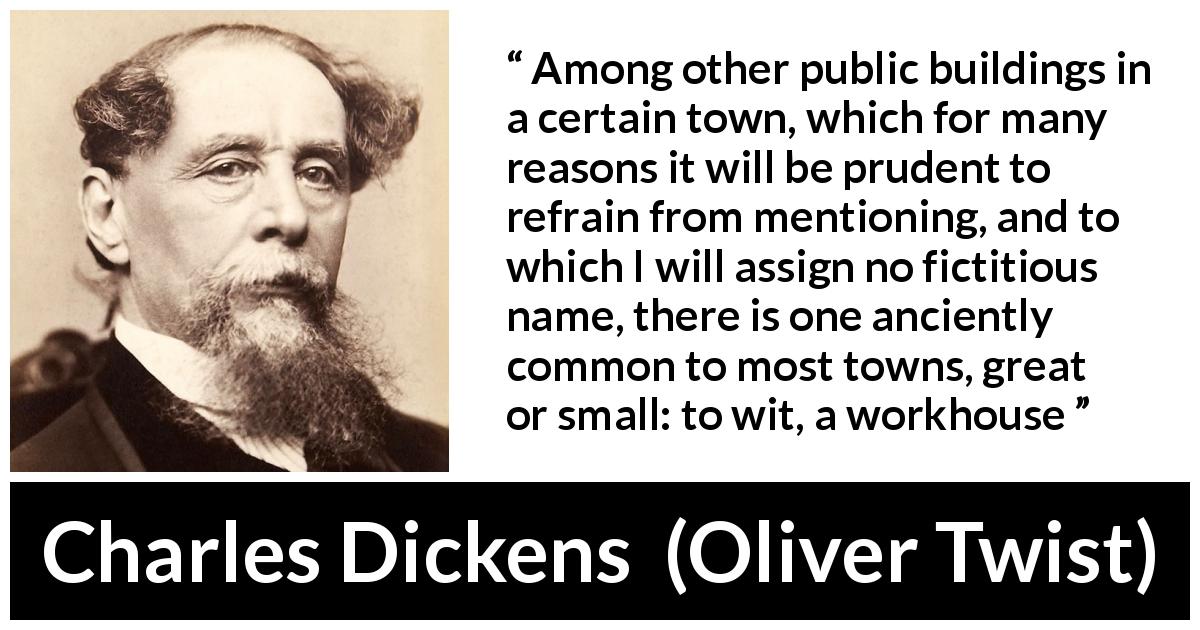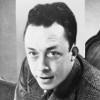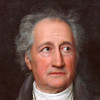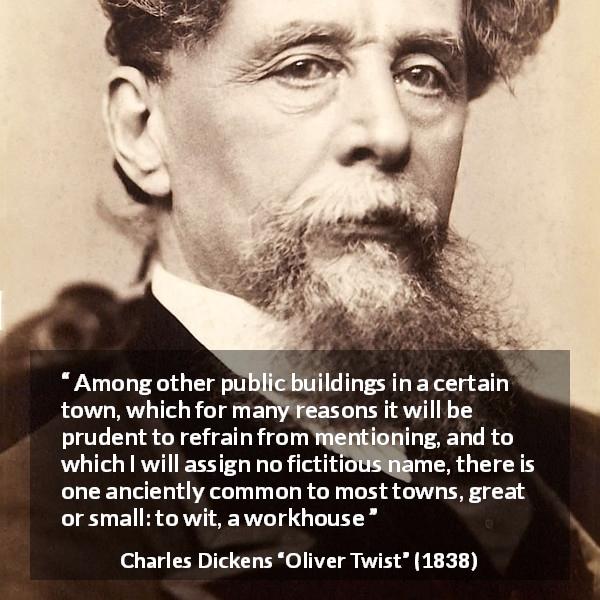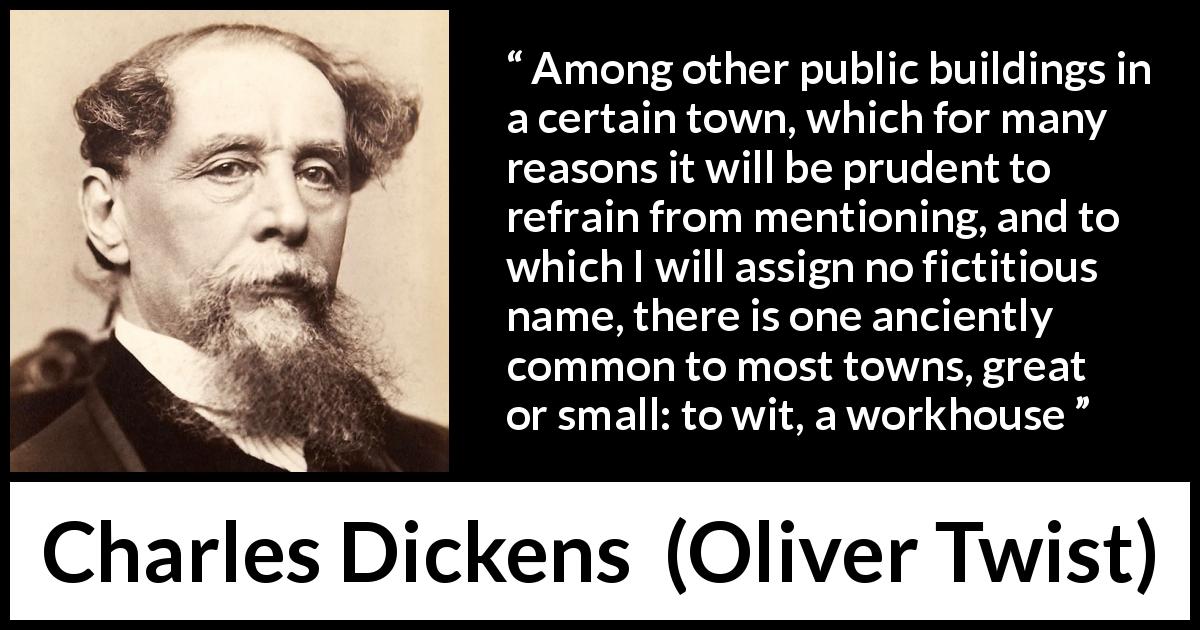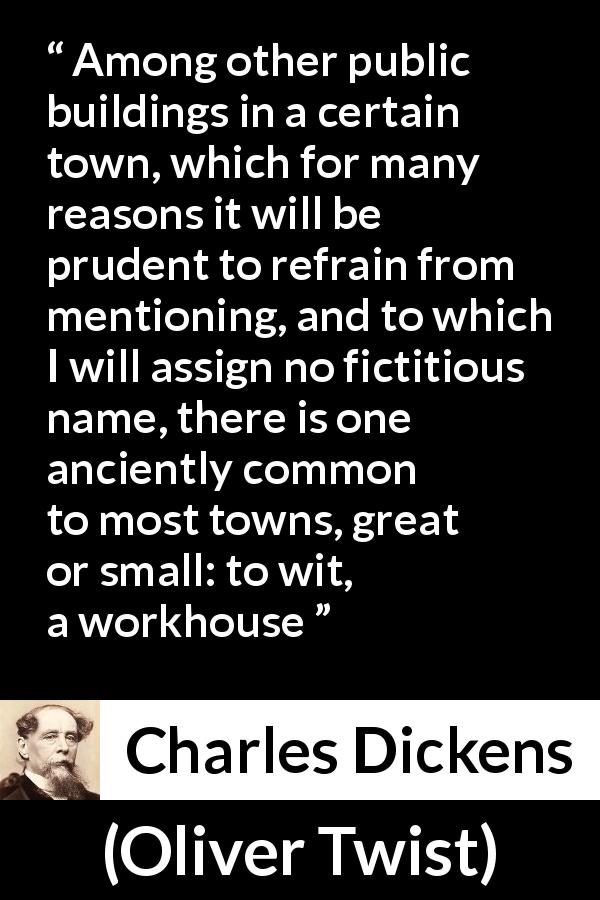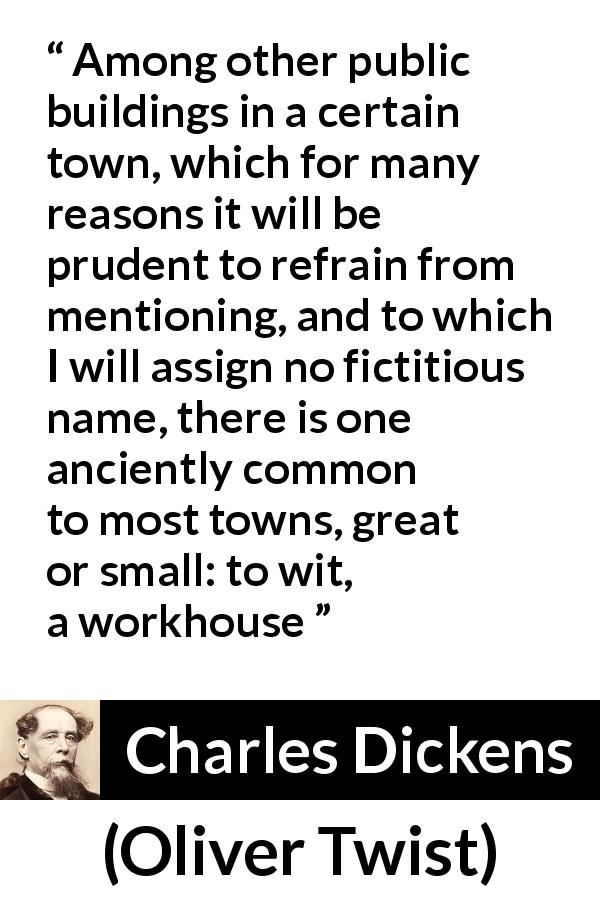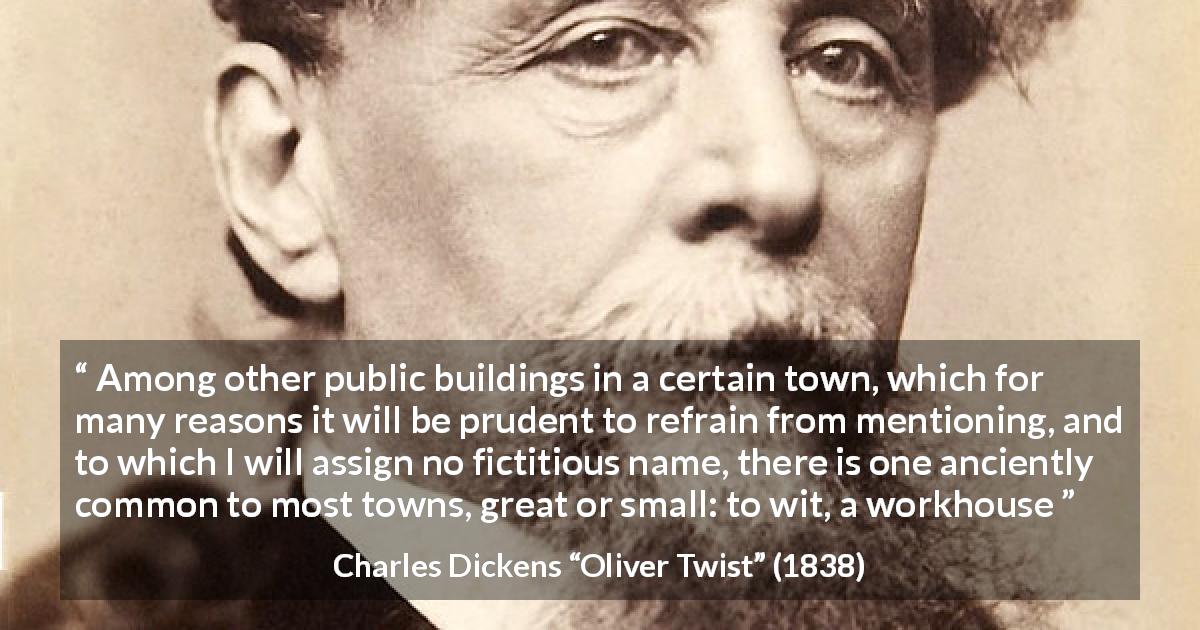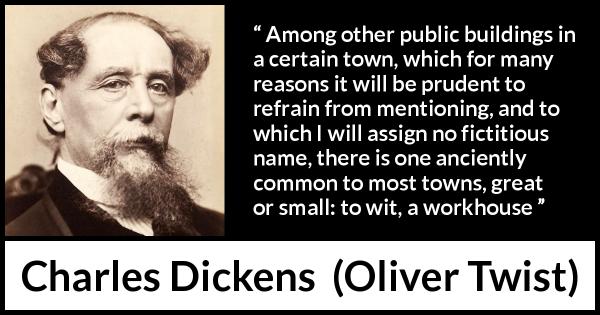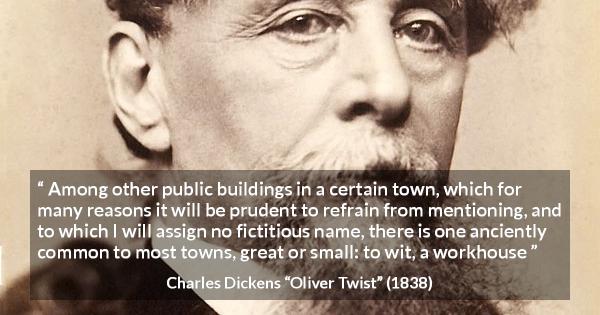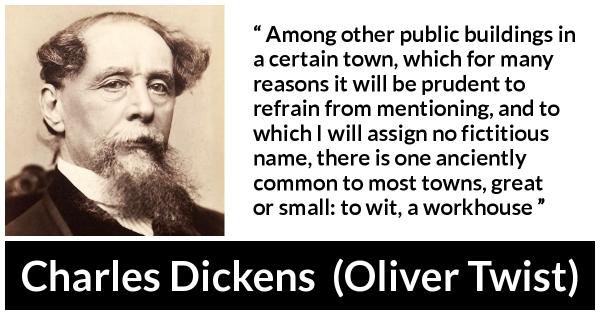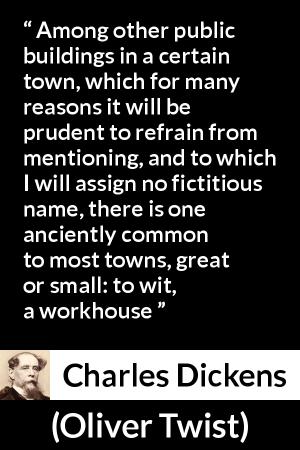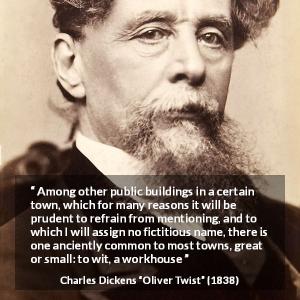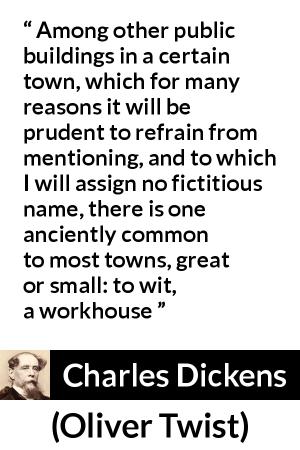“ Among other public buildings in a certain town, which for many reasons it will be prudent to refrain from mentioning, and to which I will assign no fictitious name, there is one anciently common to most towns, great or small: to wit, a workhouse ”
Charles Dickens, Oliver Twist (1838). copy citation
| Author | Charles Dickens |
|---|---|
| Source | Oliver Twist |
| Topic | poverty town workhouse |
| Date | 1838 |
| Language | English |
| Reference | |
| Note | |
| Weblink | http://www.gutenberg.org/files/730/730-h/730-h.htm |
Context
“THEIR CONVERSATION, AND THE INTELLIGENCE THAT INTERRUPTS IT L THE PURSUIT AND ESCAPE LI AFFORDING AN EXPLANATION OF MORE MYSTERIES THAN ONE, AND COMPREHENDING A PROPOSAL OF MARRIAGE WITH NO WORD OF SETTLEMENT OR PIN-MONEY LII FAGIN'S LAST NIGHT ALIVE LIII AND LAST
CHAPTER I TREATS OF THE PLACE WHERE OLIVER TWIST WAS BORN AND OF THE CIRCUMSTANCES ATTENDING HIS BIRTH Among other public buildings in a certain town, which for many reasons it will be prudent to refrain from mentioning, and to which I will assign no fictitious name, there is one anciently common to most towns, great or small: to wit, a workhouse; and in this workhouse was born; on a day and date which I need not trouble myself to repeat, inasmuch as it can be of no possible consequence to the reader, in this stage of the business at all events; the item of mortality whose name is prefixed to the head of this chapter.
For a long time after it was ushered into this world of sorrow and trouble, by the parish surgeon, it remained a matter of considerable doubt whether the child would survive to bear any name at all; in which case it is somewhat more than probable that these memoirs would never have appeared; or, if they had, that being comprised within a couple of pages, they would have possessed the inestimable merit of being the most concise and faithful specimen of biography, extant in the literature of any age or country.” source
CHAPTER I TREATS OF THE PLACE WHERE OLIVER TWIST WAS BORN AND OF THE CIRCUMSTANCES ATTENDING HIS BIRTH Among other public buildings in a certain town, which for many reasons it will be prudent to refrain from mentioning, and to which I will assign no fictitious name, there is one anciently common to most towns, great or small: to wit, a workhouse; and in this workhouse was born; on a day and date which I need not trouble myself to repeat, inasmuch as it can be of no possible consequence to the reader, in this stage of the business at all events; the item of mortality whose name is prefixed to the head of this chapter.
For a long time after it was ushered into this world of sorrow and trouble, by the parish surgeon, it remained a matter of considerable doubt whether the child would survive to bear any name at all; in which case it is somewhat more than probable that these memoirs would never have appeared; or, if they had, that being comprised within a couple of pages, they would have possessed the inestimable merit of being the most concise and faithful specimen of biography, extant in the literature of any age or country.” source
